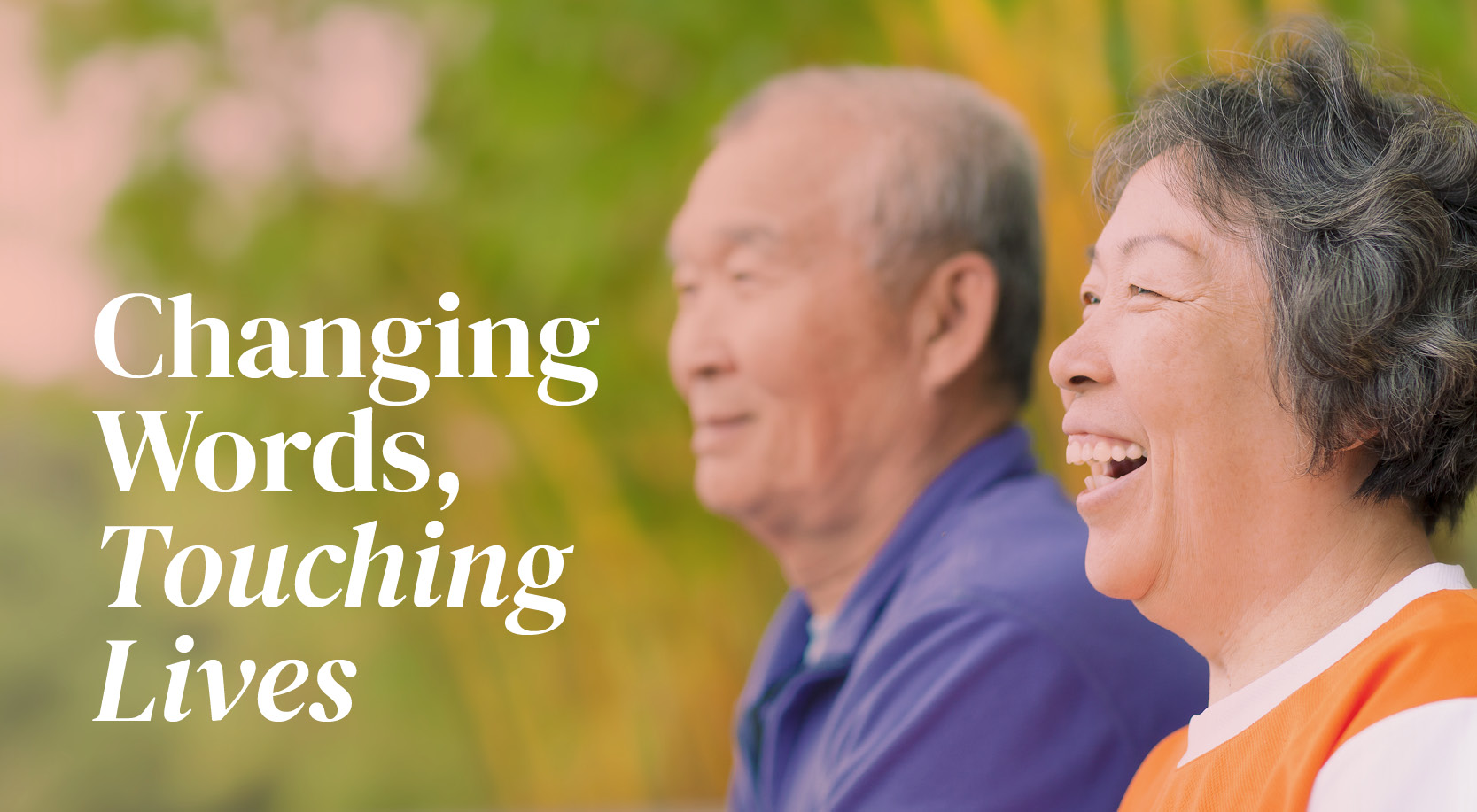Hurt can take many different forms; it’s more than physical pain. Words, especially, have the power to hurt, and the scars that result aren’t just skin deep.
The words we choose to use can have a significant and lasting impact on someone’s psyche, which makes adopting the use of appropriate words all the more important. Through the release of these language guidelines, ADA hopes to encourage the community to use words that befit the dignity that every person living with dementia should be afforded. In addition, the use of appropriate words that do not demean the person behind the label will help to dispel the stigma towards the condition, normalising the awareness that those living with dementia are still capable, and deserve to live with dignity in their own homes and our communities.
A few years ago, we realised the importance of using the correct language when talking about dementia, and, inspired by the 2018 language guidelines released by our colleagues from Dementia Australia, ADA set out to develop our very own localised Dementia Language Guidebook.
The Singapore guidebook is available in our four national languages, and contains guidelines to the appropriate terms and words to use for dementia, taking into consideration the local context. This guidebook is part of our nationwide campaign “#DespiteDementia”, and furthers our efforts to increase awareness of dementia, while reducing the stigma that is associated with it. Drawing upon the person-centred approach, this guidebook hopes to enable readers to see people living with dementia for who they are, rather than attach labels to them simply because of the condition.
Join in the discussion on how words with negative connotations can be hurtful, whether or not the hurt was intended; find out more about these new language guidelines and download the guidebook at dementia.org.sg/wordshurt.



